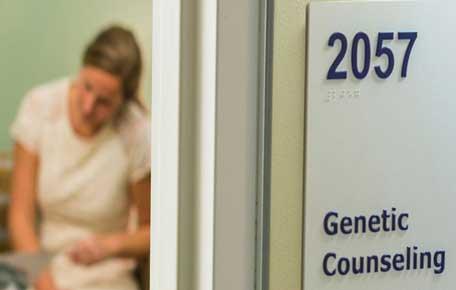Familial Aortic Aneurysm Treatment
Make an Appointment
For the Charlottesville area:
For Northern Virginia:
Finding out you inherited a familial aortic aneurysm can make you worried. How bad is it? What if you need surgery? What about your other family members? A familial aortic aneurysm, also called a heritable aneurysm, can lead to an emergency. How can you prevent that?
But knowing you have a familial aortic aneurysm means you can get help. We can answer your questions about your heart and aortic health. And we can connect you with genetic counselors that can help you and your family’s health stay on track. Our goal is to support you and your loved ones every step of the way.
Treating Familial Aortic Aneurysm & Dissection at UVA Health
At UVA Health, the providers in our Heritable Aneurysm program are experts in dealing with these kinds of genetic heart issues. We can create a care plan that is right for your condition.
UVA Health is also the only hospital in Virginia recognized by the Marfan Foundation. This organization supports people with Marfan syndrome, a connective tissue disorder that can cause heritable aneurysms. And, 5 of our heart treatment services were named as "high performing" by U.S. News & World Report. That includes our aortic valve surgery and TAVR.
How Do You Treat Familial Aortic Aneurysm and Dissection?
If you have a heritable aneurysm, your treatment will depend on how severe your condition is. You may only need to get regular checkups. Or, surgery might be best. You and your doctor will work together to decide what option works for you.
Watching & Waiting
If your aneurysm is small and not causing symptoms, we’ll only do regular checkups with imaging. If it isn’t growing bigger, you may not need treatment yet.
Healthy Lifestyle
Making changes to your lifestyle can help. These include:
- Eating healthy foods
- Stopping smoking
- Managing blood pressure and cholesterol
Medicines
Your doctor may give you medicine to lower your blood pressure and protect your arteries.
Surgery
If your aneurysm is growing or changing, you might need surgery. Our team offers options that can fix your aneurysm, and make your recovery quicker and easier.
Treating a familial aortic aneurysm involves:
- Treating the aneurysm itself.
- Treating other artery issues to reduce the risk of related problems.
What Is a Familial Aortic Aneurysm?
Your aorta is the largest blood vessel. It carries blood away from your heart and out to your body (an artery).
An aneurysm happens when a weak spot in the wall of an artery bulges out like a balloon. The aneurysm can get bigger over time. It may leak or tear, sometimes called a rupture or an aortic dissection. When that happens, it’s a life-threatening emergency.
Familial aortic aneurysms are caused by genetic mutations that can be passed down through families. These usually involve the part of your aorta that’s in your chest (thoracic aorta). Most aneurysms are caused by aging, but familial aneurysms may also affect younger people. They’re often linked to genetic conditions such as:
- Marfan Syndrome
- Loeys-Dietz Syndrome
- Vascular Ehlers-Danlos Syndrome
How Do I Know If I Have a Heritable Aneurysm?
People often find out they have a heritable aneurysm through:
- Family history: A relative has one, or a condition that can cause one.
- Emergency event: You may have an emergency like an aortic dissection.
- Other conditions: You may be diagnosed with a genetic condition that can cause one.
In all of these cases, it’s a good idea to talk with a heart specialist and get tested.

Heart Genetics
Our genetic counselors can help you and your family understand and manage your heart condition. If you have a genetic condition in your family that can cause an aneurysm, we can figure out who is at risk and help you understand what to do about it.
Resources for Familial Aortic Aneurysms
We can connect you and your family with resources, like:
- Online and in-person support groups through the Marfan Foundation
- Educational materials to help you understand and manage your condition
- Genetic counseling that helps you manage all of your conditions